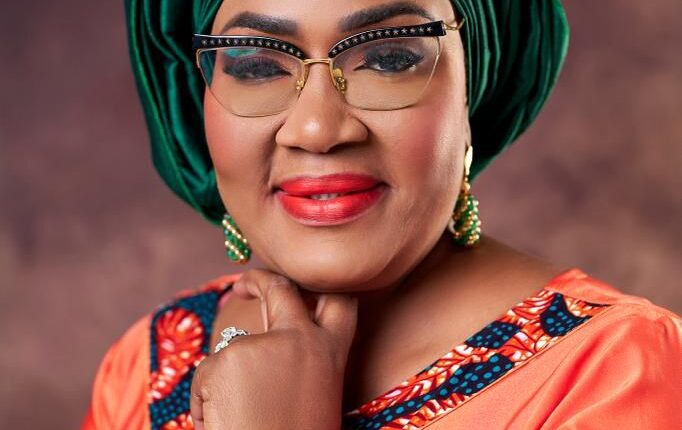67 years after Ghana gained political independence, no female has occupied the first or second highest office in the land yet it continues to pride itself as a beacon of gender equality and advocate of women empowerment.
As the country inches closer to general elections in December this year, the campaign for the political parties to elect females as either the presidential or vice presidential candidates have intensified with a chunk of the pressure falling on the incumbent party, the New Patriotic Party (NPP).
The NPP and the National Democratic Congress (NDC) are the two largest political parties in the country and have alternated political power since the country returned to multiparty democracy under the Fourth Republic
Unlike the NPP which is yet to elect a running mate to partner Vice President Mahamadu Bawumia, the party’s flag-bearer, the NDC which is the largest opposition party has for the second time settled on a female as its running mate.
The NDC to the admiration of many, proved its genuine commitment to empowering women by ensuring gender balance on its 2024 ticket.
The party’s candidate, former President John Mahama, went for Prof. Naana Jane Opoku-Agyemang, an accomplished Academic as his choice of running mate.
The NDC, just like 2020, has proven to be a model of inclusiveness and gender balance in the selection of leaders.
If there is any political party in Ghana that has bragged of believing in women, it is the NPP yet that is the only major political party in Ghana that has consistently ignored women on its ticket.
Even the Convention People’s Party (CPP) in the year 2012 also elected Nana Akosua Frimpomaa Sarpong II as its running mate. That was a statement.
The Progressive People’s Party (PPP) in the year 2012 selected Madam Eva Lokko , now of blessed memory as its running mate.
The PPP, again in 2016, settled on Ms Bridget Dzogbenuku as the party’s running mate.
The NPP, once again, has yet another opportunity to demonstrate its confessed support for women, believe in gender balance, believe in women and believe in women empowerment by its choice of running mate to partner Vice President Bawumia for the 2020 polls. Actions, they say, speaks louder than words.
Already it has settled on Vice President Bawumia, a devout Muslim as flag-bearer. The general expectation is that he settles on a devout Christian female as his running mate.
The changing attractions of a political commodity have become more complex than simply relying on an Akan-Northern ticket as the magic wand for electoral victory in the NPP. Multifaceted factors such as gender, persona, age, religion, demographic representation and targeting minority markets and swing Regions to top up votes from strongholds all amount to the attractions of a political commodity.
Interestingly, the NPP has more than enough capable women to consider as running mates. Two of such women whose names have become headline news in recent times as potential running mates are Irene Naa Torshie Addo a 53 year old lawyer, Evangelist and diplomat as well as Madam Frema Osei-Opare the Chief of Staff, a retired Academic who turns 77 this year.
Both Frema and Irene have served as Members of Parliament in time past. Currently, Irene is the Administrator of the District Assemblies Common Fund. She once served as Ghana’s Deputy Ambassador to the United States. She also served as a Deputy Minister for Foreign Affairs. A philanthropist to a fault and an advocate for women empowerment and child rights.
Among the tall list of influential persons and credible institutions campaigning for all the political parties, especially the NDC and the NPP to pick a female as running mate is the International Federation Of Women Lawyers (FIDA-GHANA) FIDA Ghana.
FIDA Ghana in a recent statement noted: “it is a shame that after 66 years of independence, Ghana has had no woman vice president”
They noted further: “Ghana has organised seven successful elections since 1992. However, women’s share of parliamentarians in all these elections has always been below the African average of 21 per cent and far less than the UN-recommended 40 per cent minimum threshold. Even in the District Level Elections, Data from the Alliance for Women in the Media stated that females elected as Assembly Members are less than five per cent.”
The statement noted further: “any political party that shows little inclination to nominate running mates as women and support their female candidates sends signals that they have a male-oriented party culture which is undemocratic and exclusive, favouring male participation.
“Such a culture ignores women’s rights to fully participate in politics. Additionally, any culture that asks female candidates to step down for more “successful” male candidates perceived by the leadership of political parties as a “safe” candidate over the female candidate clearly contravenes the Sustainable Development Goal (SDG) Five, which calls for gender equality.
“The SDG Goal Five further states that women’s equality and empowerment is one of the 17 sustainable goals, which is also integral to all dimensions of inclusive and sustainable development. Gender parity in politics is, therefore, essential to the progressive development of all women and girls.
“As Ghana prepares for its ninth election, FIDA advocates that all political parties should consider the selection of women as their running mates. This will ensure that at least whichever political party wins the elections, its vice president will be a woman.”


Comments are closed.